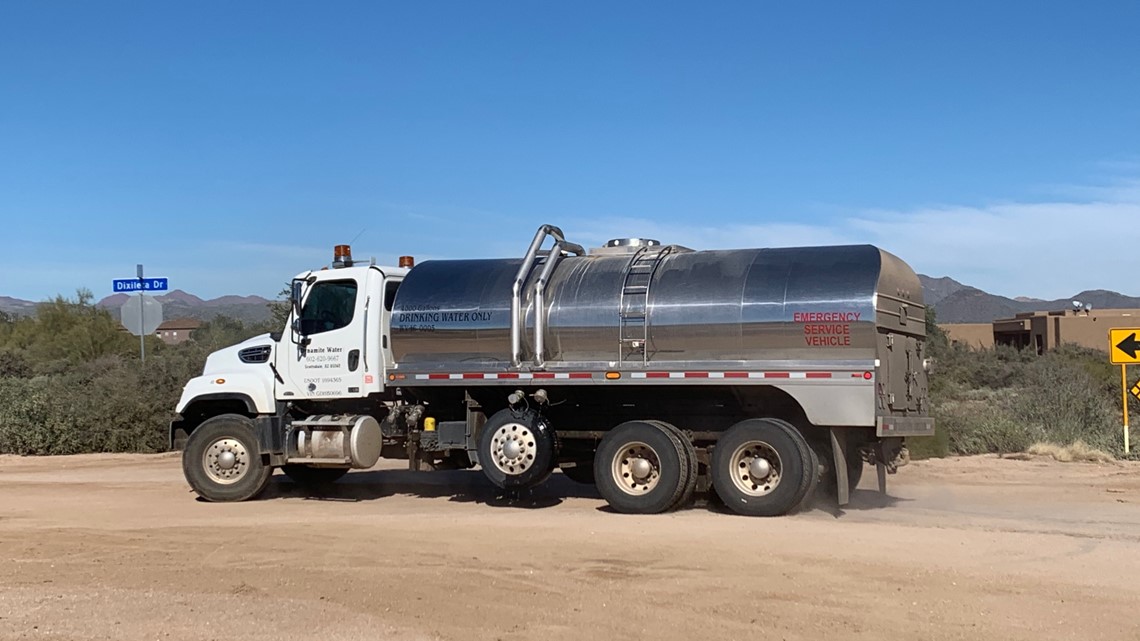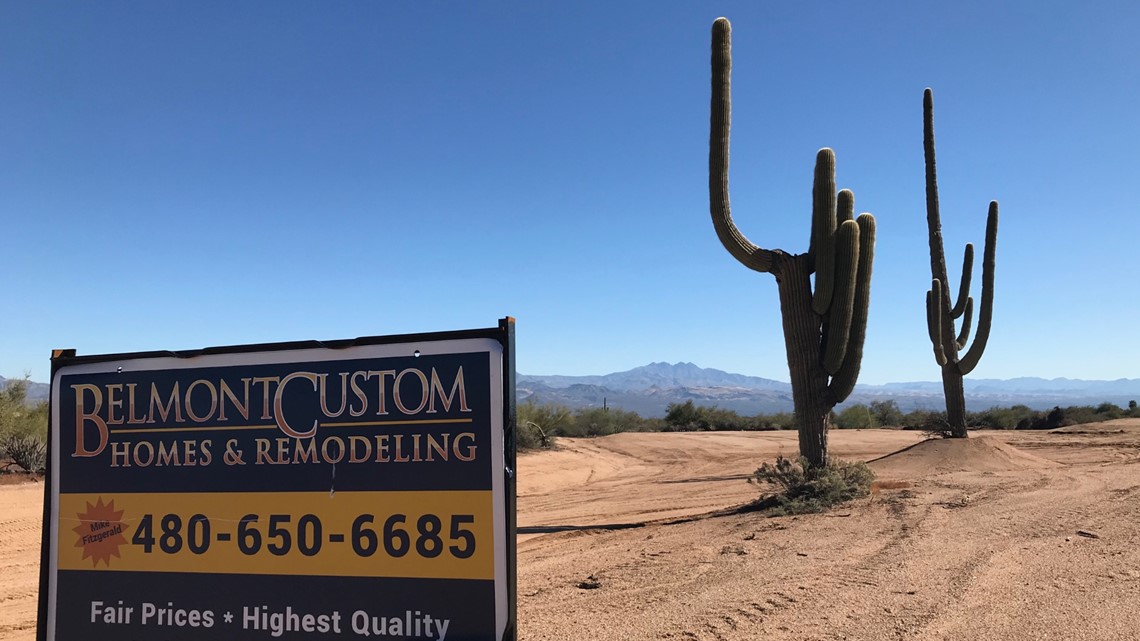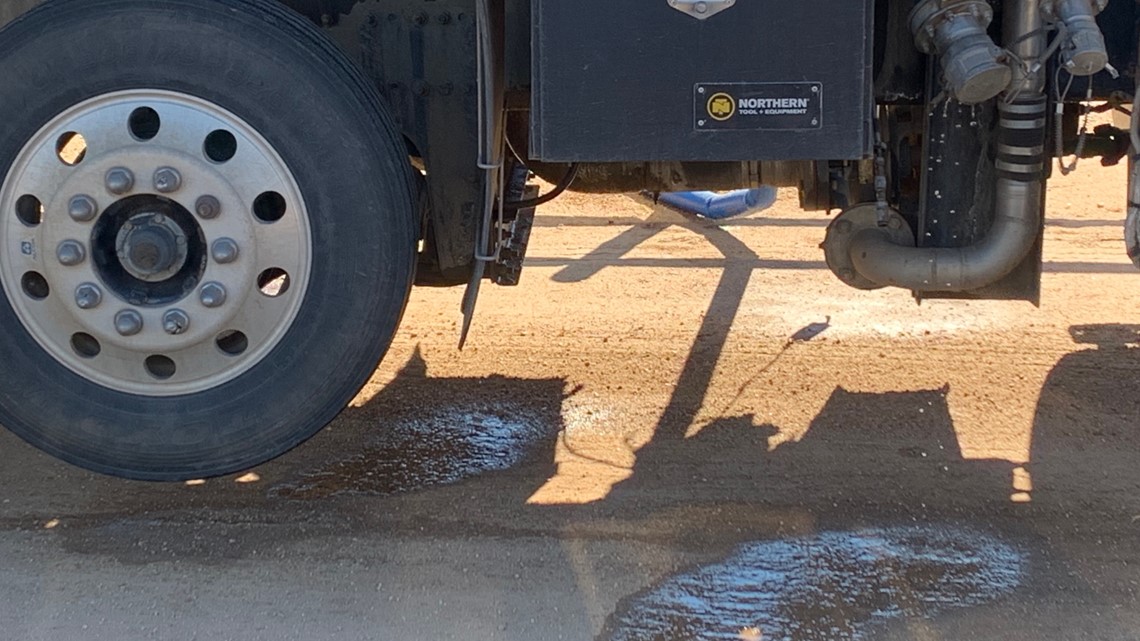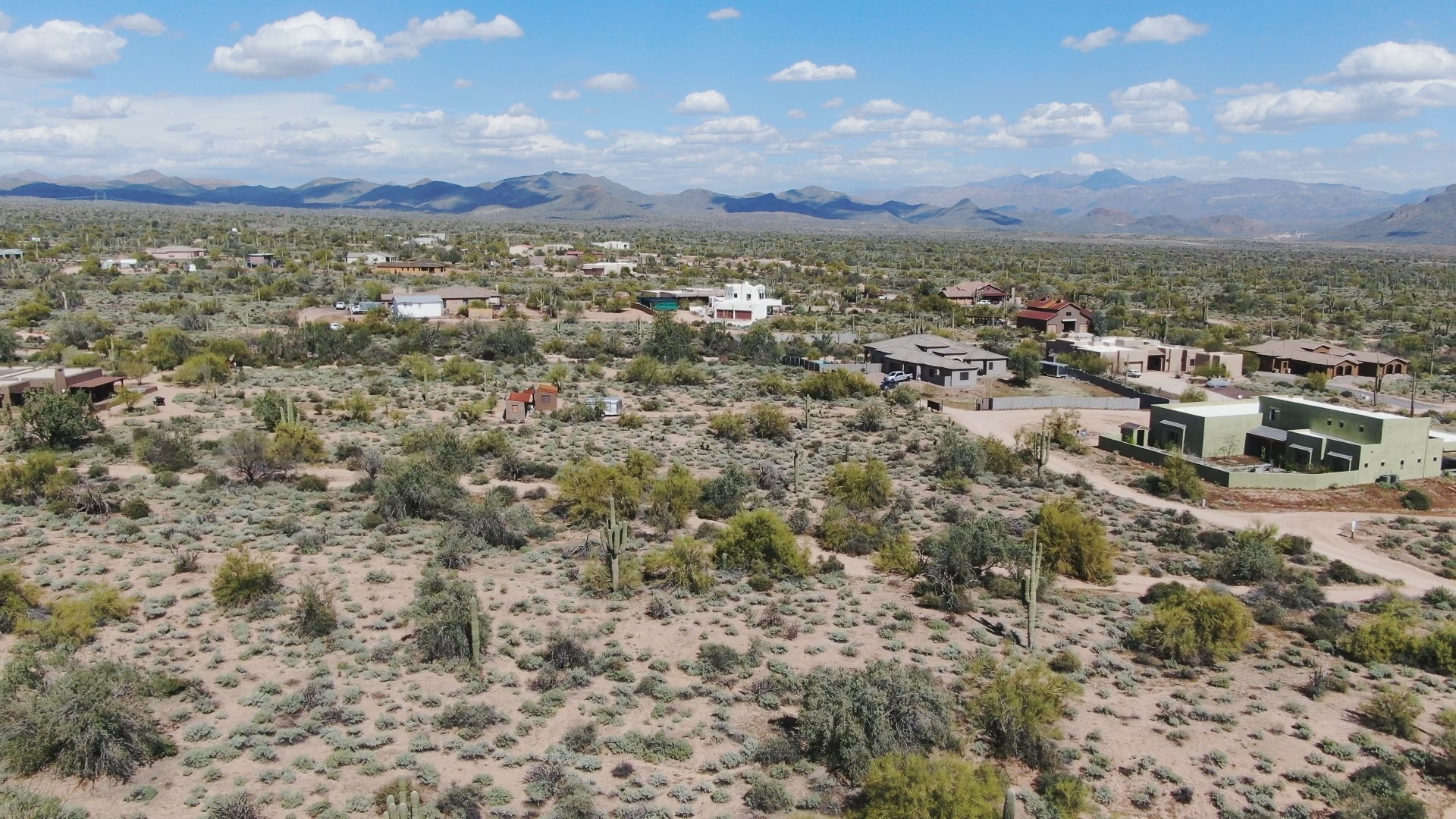RIO VERDE, Ariz. — Flooding rains have eroded the roads here until they resemble desert washes, but they still will carry you to someone's version of paradise. The roads curl past multi-million dollar homes, lead to sprawling ranches and take people to views once thought impossible to see from a front porch.
Rio Verde Foothills (RVF) looks abundant, from the desert landscaping to the red-tile roofs. But one thing isn't abundant: Water.
The wealthy community north of Scottsdale is the site of the latest skirmish in a coming water war. It's a New West struggle that plays out like the Old West stories that have left ghost towns strewn across the Arizona landscape.
Everything is great as long as the resource you're taking doesn't run out.
And then it does.
There have been screaming matches, property damage and death threats, according to the people who live there. The hostilities are to the point where the residents who spoke to 12 News wanted to remain anonymous.
What will you do when the water goes away?
The Foothills won't be the last Valley community that will have this conflict. The same conditions that exist in the area exist other places.
>> See the development of RVF over the years below:
'There's nothing': How thousands of Rio Verde Foothills residents may be without water by year's end
Foothills residents are not Scottsdale residents, even though the two share a ZIP code. Scottsdale, however, has been one of the largest suppliers of water to the rural community.
The rural community's homes mainly get water in one of two ways: through water wells or through private water-hauling services.
Wells were the first option. The ability to pull water from below the ground is the reason why cities like Phoenix and Tucson exist today, and RVF is no exception.
Water hauling only became widely used when most of the area's wells began to run dry, according to a Scottsdale city official. Hauling involves semi-trucks sucking up water from one location, in this case from Scottsdale, and then pumping it into a tank at someone's home in another location, such as RVF.


The usage of wells and water haulers was doable until the drought worsened in Arizona. Scottsdale is cutting off its supply at the end of 2022 as a part of its drought contingency plan.
"We've been telling them for five years since this began that we are not their permanent water solution," said Valerie Schneider, Scottsdale Water's Public information officer. "At some point, we have to realize this is our water, we're in a drought, we're in a Colorado River shortage so we have to take a stance."
See the announcement letter that was sent from Scottsdale to Rio Verde Foothills residents on Nov. 1 here:
Water hauling from Scottsdale has become such a necessity for RVF residents that around 500 homes in the area rely solely on water hauling services, said resident Karen Nabity, who co-runs a website detailing the community's water woes.
That number is continuing to grow and is outpacing the amount of well-water homes, even in spite of the impending cut-off.
More than 240 hauled-water homes were sold in Rio Verde Foothills since March of 2018, around when the first public meetings about the water issue were held. That's more than two times the amount of well-water homes sold in the same time period.
Nearly 30 other hauled-water homes have been put on the market since Scottsdale sent out a formal notice of the cut-off last November.
This isn't the first time this has happened. A similar situation took place in 2017 when Phoenix officials announced they would be cutting off their water hauling supply to residents in New River. EPCOR, a private utility company, stepped in to create a filling station for New River in 2018.
Foothills residents are currently fighting over what their solution to their cut-off should be. Some want county officials to approve the formation of a Domestic Water Improvement District while others want to stick to their wells.
In the end, any solution will be comparable to slapping a Band-Aid on an open wound. The problem will continue until drought conditions improve or the administrative issues that caused this problem in the first place are addressed.
Numerous Arizona communities could see the same issue. Here's why:
There are many systemic problems that allow the community-wide issue that Rio Verde Foothills is facing to exist. They surround what realtors are required to disclose, who the county is allowed to issue permits to, and what Arizona law considers a subdivision.
Many residents have told 12 News that they weren't made aware of the issues before it was too late.
Residents who asked to remain anonymous in fear of retaliation said the following:
- "That agent that we bought from didn't mention at all the fact that water would be getting cut off."
- "We knew that the water was being hauled, but nobody said anything about that there's a limited supply."
- "It's something you would never, ever think to ask. [Not having water] isn't a common thing you'd expect you'd have to do due diligence on. We closed on our house in November and it wasn't until we started talking to neighbors that we realized that water was set to be cut off."
Houses in Arizona must list where their water comes from, according to Arizona Regional Multiple Listing Service. The options include city water, private water company, private well, shared well, onsite well, irrigation and hauled.
There is nothing in state law, however, that requires realtors or sellers to let buyers know that water will be cut off in the near future. Testimony from numerous residents shows realtors are doing just that.
"Statute does not specifically require the disclosure of an assurance of water when selling a single property, a sale between a seller and buyer," said Jim Knupp, Deputy Commissioner of the Arizona Department of Real Estate. "Generally, buyers are encouraged to research water availability and determine there is an assured or adequate water supply."


Why are builders allowed to make homes without water access?
Arizona law requires most developers and builders to prove what they're building will have a 100-year supply of water. This requirement is for land that is considered a subdivision; legally defined in the state as being six or more lots.
But, what if the land is divided into five or fewer lots?
This loophole in state law allows landowners to split and sell land into five or fewer lots known as "wildcat lots." Developers can sell these lots without having to provide usually required assets like paved roads, sewer lines and, most importantly, the 100-year water supply.
Foothills residents aren't just angry at realtors not being completely honest with them. They're also angry that the Maricopa County Board of Supervisors is still issuing building permits on land they know is at risk of having no water access.
"Arizona law allows for dry lots, which lets you build a house that doesn't have access to water," a Maricopa County Board of Supervisors representative said. "We as a county do not have a mechanism to deny them purchasing and building on that property."
How can home buyers make sure their Arizona dream house has water?
The only thing potential buyers can do is do their best due diligence on the desert property they're buying, according to Arizona Department of Water Resources Director Tom Buschatzke.
Buschatzke said potential home buyers have few options at their disposal where they can learn more about their property's water access. There are no private contractors that can check your home's water access like there is for electrical or plumbing issues, but some of the resources include:
- Contacting the Arizona Department of Water Resources
- The department can help prospective buyers with numerous questions, including whether the area has a short water supply and whether it's serviced by a city or municipal water company. - Reaching out to Arizona's Corporation Commission:
- The commission regulates private water companies in the state. The corporation offers a map of Arizona water companies, water rules and frequently asked questions on its website. - Asking the Arizona Department of Environmental Quality:
- This department regulates water quality and drinking water throughout the state. Buschatzke said it may have information regarding the health of the water in a certain area.
Ultimately, buyers should be aware that they are buying homes in unincorporated land in the desert, Buschatzke said.
"In most of the United States, people expect water access as a given," the director said. "We are very lucky in that regard because less than one percent of the world's population has clean, running water 24/7. We are spoiled in that regard."



